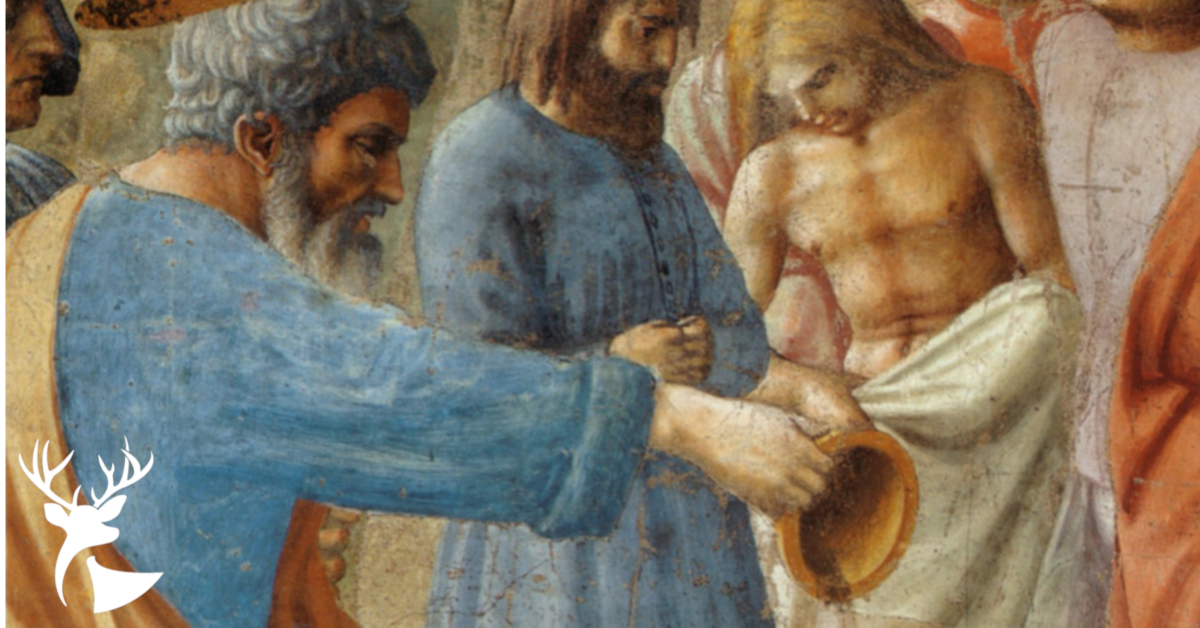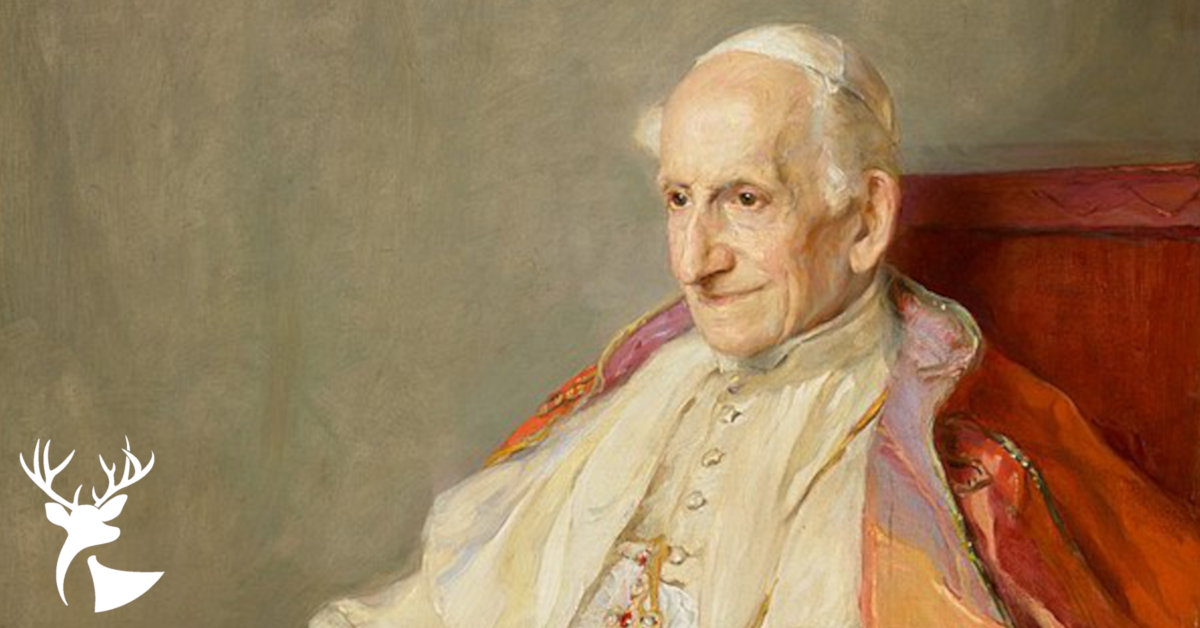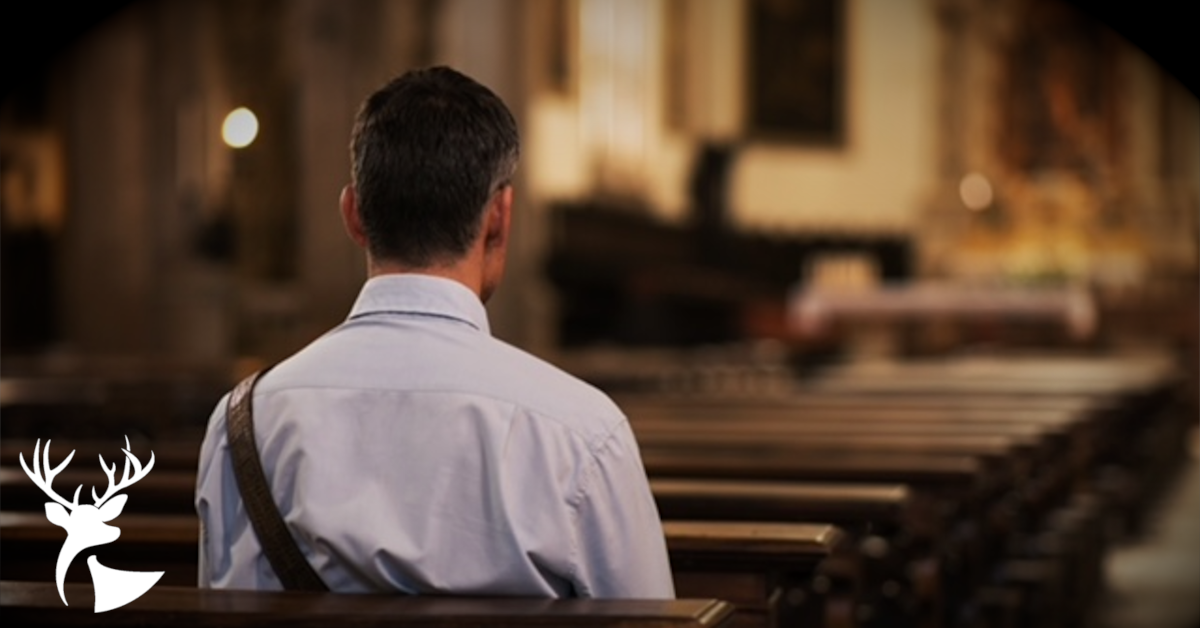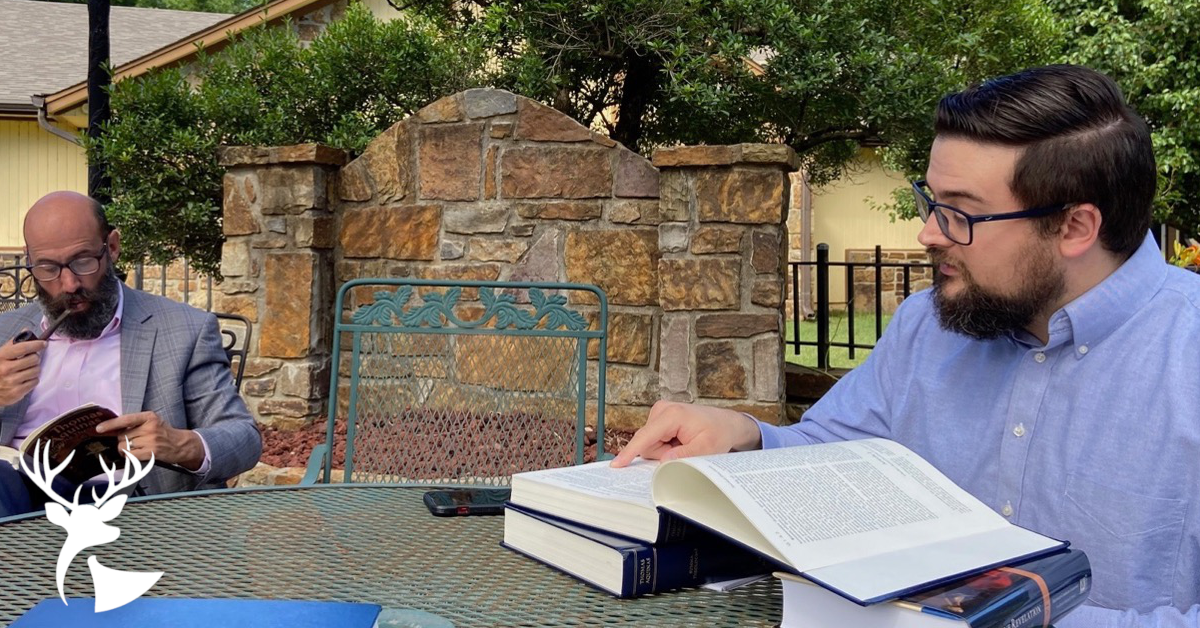
The Custom of Reading Out Loud
By Joey Spencer | August 22, 2022
“You don't have to burn books to destroy a culture. Just get people to stop reading them.”
—Ray Bradbury
← Return to Musings
The Custom of Reading Out Loud
By Joey Spencer | August 22, 2022
“You don't have to burn books to destroy a culture. Just get people to stop reading them.”
—Ray Bradbury
Over the summer the Alcuin Institute hosted its first Catholic Imagination Fellowship. As part of this fellowship three college-aged scholars participated in two accredited, two-week intensive Great Books courses covering the ancient and medieval writers, as well as a two-week internship working with the staff of the Eastern Oklahoma Catholic. It was a great joy to get to work through so many texts with the students and my fellow tutors in the Institute. One of the texts we read was Euthyphro by Plato. It is a fairly short text and one that can be read in about an hour. One afternoon after class, we decided to read the entire text out loud so that the text would not only be read, but also heard. Euthyphro can be a tough text, and sometimes in hearing the dialogue read out loud our ears catch things that our eyes don’t. Not only was it beneficial, but the Fellows thoroughly enjoyed having the text read to them.
Every teacher at one time or another will find themselves reading to their students. As a parent, I read to my son all the time, until he was able to read the books himself. Once my son could read, it was rare that I would read out loud unless I was teaching a class. All of my friends are readers, but unless it is a poem on all too rare occasions, we do not come together to read texts out loud to each other. Outside of classes or reading to our kids, why don’t we read to each other more often? Perhaps we should!
The occasion that made me ponder reading out loud was a book I read recently called The Haunted Bookshop, written shortly after the end of World War I. One of the main characters of the story is Roger Mifflin, a charismatic pipe-smoker and owner of a used bookshop. Mr. Mifflin takes on a new employee and lodger named Titania whom he is introducing to the world of books. On the first night Titania stays with the Mifflins, and after dinner, Roger Mifflin makes the following suggestion for the evening’s entertainment. “Well my dear,” said Roger after supper that evening, “I think perhaps we had better introduce Miss Titania to our custom of reading aloud.”[1] Titania is of course delighted at the idea of being read to.
This then made me think of the Inklings. Several years after the time depicted in The Haunted Bookshop, A group of scholars and Oxford dons, including C. S. Lewis, J. R. R. Tolkien, Owen Barfield, and Charles Williams, would come together in the rooms of C.S. Lewis or meet at the Eagle and Child pub to read texts to each other. Some read their own texts, and many are now considered classics in their own right.
These 20th century examples made me ponder reading out loud in the Church. My first thoughts went to another book which was read by the scholars of the Catholic Imagination Fellowship, The Rule of Benedict. Rule thirty-eight concerns the weekly reader.
“The brothers’ meals should always be accompanied by reading, not by a person at random who just picks up the book, but by someone who will read for the whole week starting on Sunday. After Mass and Communion, the one who is starting his period of duty should ask all the brothers to pray for him, so that God may preserve him from a spirit of pride, and then everyone in the oratory should repeat this verse after him three times, ‘O Lord, open my lips, and my mouth will show forth your praise’ (Ps. 51:15). Then he will receive a blessing and start reading.”[2]
They hear the Word of God while they are eating. They ingest the Word of God with their ears, just as they ingest the food on their plates with their mouths. We do the same, when at every Mass we hear the priest or deacon read the Gospel in the Liturgy of the Word. St. Paul tells us, “faith comes from what is heard, and what is heard comes by the preaching of Christ” (Romans 10:17). Being read to has always been a part of the Tradition of the Church.
Unfortunately, we live in a time that is very noisy. It is hard to escape the television, the radio, and the internet. If you think about it, in a way, these modern technologies are just a modern way of reading out loud to us. Perhaps it would be better to turn them off. A better alternative would be to get together with your family or a few friends, pick up a good book or Sacred Scripture, and as Roger Mifflin would say, re-introduce “the custom of reading aloud.”
[1] Christopher Morley, The Haunted Bookshop (Philadelphia: J B Lippincott Company, 1955), 74.
[2] The Rule of Benedict, trans. Carolinne White (New York: Penguin, 2008), 38.
More Reading
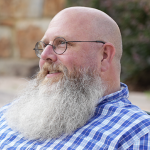
Joey Spencer is a Tutor for the Alcuin Institute for Catholic Culture, and serves as the Archivist for the Diocese of Tulsa.








